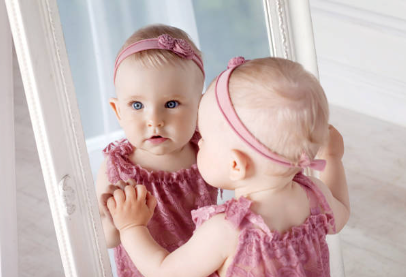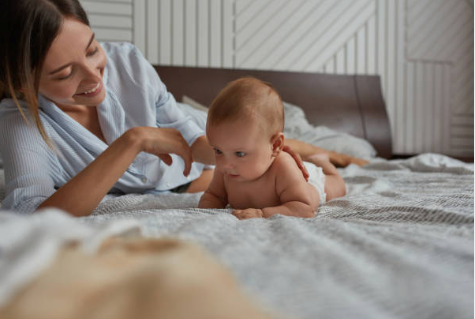4 Tips for Helping Your Baby’s Development
As any parent knows, the first years of a child’s life are the most crucial for the development of motor skills and language.

This means that using tools to aid and encourage progression can help your child to have the best start in life.
If you’re preparing to help your little ones take the next steps, then check out our collection of tips to help you develop your child from birth.
1. Use Mirrors for Self Recognition
Mirrors can be a fantastic tool for aiding babies with the development of their self-recognition. The use of mirrors can help babies to develop their visual senses, and using speech in conjunction with the mirrors can influence speech development.
You can use mirrored toys or handheld mirrors, and when your child grows you can even install full length mirrored doors or cupboards to help them explore their appearance, and reflective effects of mirrors with symmetry.
Companies like Halifax Glass can help you install high quality mirrored features made from safety glass around your home and made to your bespoke measurements.
2. Encourage Tummy Time
Tummy time is essential for the development of a child’s physical strength and growth development. Using tummy time from 2 months old can help to develop the motor skills that will eventually develop into an ability to crawl and later, walk. It will also help to strengthen key muscles and core strength.
Although tummy time will often begin on the parent, it will often progress to tummy time on a mat on the floor, allowing children to explore textures and visual elements on the mat.
You can find mats through children’s toy shops like Smyths, where you can find mats with attached play gyms with an arching structure with a dangling mobile to interact with.

3. Use Toys to Inspire Motor Skills
Introducing your children to toys from an early age will encourage creativity and imagination, but will also help them to develop crucial grip and grasp skills, and will help them to understand how objects can move, what noises they make, and how their movements can influence how an object behaves.
You might want to consider toys that involve threading or lacing, weaving, or the use of pincer movements for young children.
4. Talk to Your Child
This may sound obvious, but talking regularly to your child, even before their language begins to develop will encourage an extension of their vocabulary.
Alternative communication like the use of facial expressions is also important for promoting emotional development and social skills, and babies will begin to mimic facial expressions from between 6 and 8 months.
Once your child is older, you can also begin to use flashcards alongside key words to encourage language development, which will encourage your child to begin speaking faster.
Shops like JoJo Maman Bebe stock wonderful flashcards with colourful illustrations and easy phrases to spell.